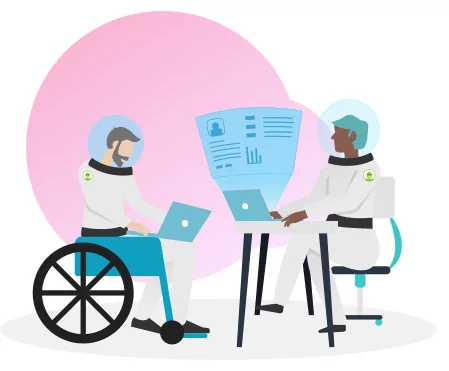Many companies value a candidate who has strong analytical skills, no matter the industry. Which analytical skills should you list on your resume?

Listing Analytical Skills on Your Resume
Analytical Skills
When writing your resume, you might not know exactly what to add to the skills section. Between hard skills and soft skills, there are too many to list in one place.
All companies appreciate employees who use analytical thinking. You don’t necessarily need to be a data analyst to have analytical skills. Even creative jobs value someone who is able to be both creative and analytical when needed.
Critical thinkers are vital to any work environment, but your resume needs to show that you have the skills and experience to back it up. Being able to solve complex problems in the workplace and applying quick decision-making can improve your chances of landing that first job interview. Let’s take a closer look into what qualifies as an analytical skill and how to add these skills to your resume.

What Are Analytical Skills?
Analytical skills basically require critical thinking, brainstorming solutions, and being able to draw conclusions from large volumes of data quickly. In other words, analytical thinkers excel at all kinds of problem-solving within the workplace. Here are some examples of analytical skills to add to your resume:
- Critical thinking skills
- Problem-solving
- Research skills
- Data analysis/data collection
- SEO optimization
- Time management
- Troubleshooting issues for clients and staff
You might not think of yourself as having analytical skills, but with a bit of tweaking, you’ll probably find that you’ve used the above skills in one situation or another, and can apply your skill set to pretty much any industry. Now we’ll go over some examples of hard and soft analytical skills you can add to your resume.
Analytical Hard Skills vs. Soft Skills
Many job seekers will need a good mix of hard and soft skills to truly thrive in the workplace. However, it can be difficult to differentiate between the two, especially if you are new to the workforce.
-
Hard Skills
Hard skills are any technical skills or knowledge related to your job. This can deal with anything from familiarity with specific work-related programs or equipment to data analysis. Most analytical skills typically fall under hard skills.
Pulling keywords from the job description is a good place to start for gathering up the right hard skills. For instance, if a job description specifically calls for a candidate with “social media management” experience, then you will want to list that under your skills. Doing so can also get you past any applicant tracking systems (ATS) that will scan through your application for these keywords. By only listing relevant key skills for the role, your resume will get in front of a real person much quicker.
If you have any relevant metrics to pull from your last job (i.e., number of sales), then it will solidify your case as the best candidate for any given position. This will also act as proof of your skills in action.
-
Soft Skills
Soft skills are more personal in nature and often say more about your personality and how you will fit into the company culture.
Problem-solving skills, for instance, are considered soft skills. If you are able to analyze problems and find effective, clear solutions, then you will be extremely valuable to almost any team. Additionally, being a team player, flexibility or adaptability, and other qualities will make you seem like someone easy to get along with. Hiring managers will be more open to hiring people who are open themselves, after all.
Overall, your soft skills should show that you are not only skilled in what you do, but a great person to work with as well.
FAQs: Analytical Skills
Listing your analytical skills on your resume is all well and good. However, you also need the experience to prove those skills. Write about how you applied analytical thinking to your previous jobs. By doing so, you’ll give the hiring manager a better sense of the kind of employee you are. You can also talk more about these skills in a job interview or in your cover letter.
Cover letters are increasingly becoming more and more important for the average job search. These letters give you the opportunity to tell the recruiter more about your analytical thinking skills. It can also convince them that you are the perfect fit for the job in just one page or less.
Oftentimes, the cover letter is listed as optional. It is always a good idea to write one specifically tailored to the job description, as it allows you to stand out from other applicants. Visit ResumeNerd’s cover letter writing tips page for more advice.
If you are having trouble formatting your resume, then let ResumeNerd help! Our resume builder tool can easily whip up a great resume template for you to use in just a few minutes.








